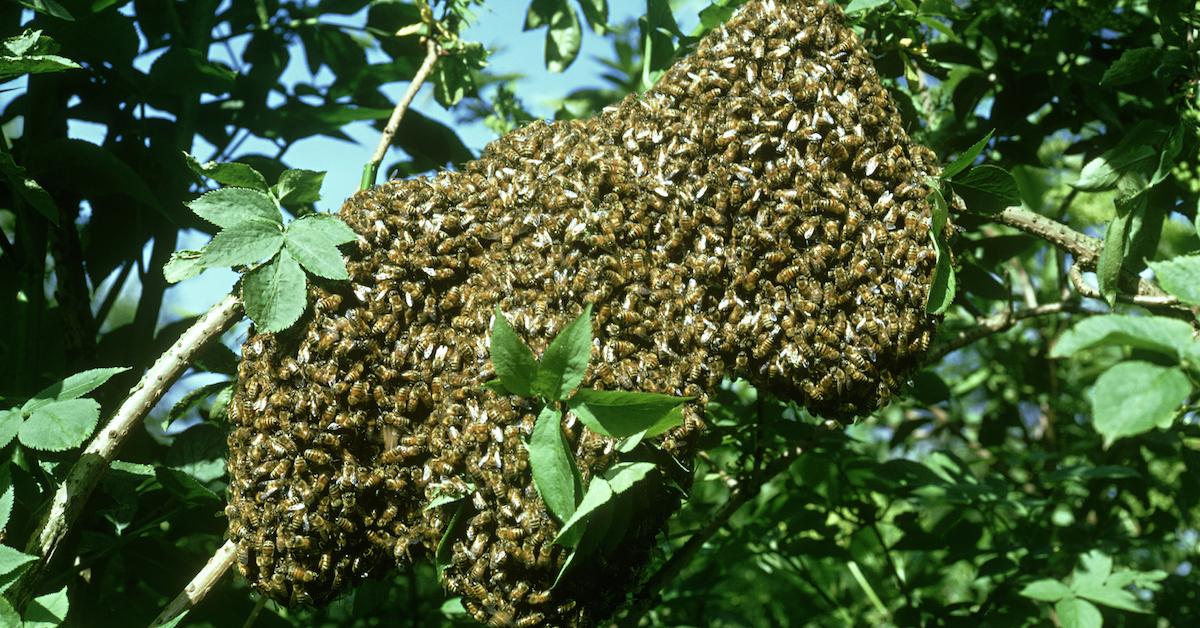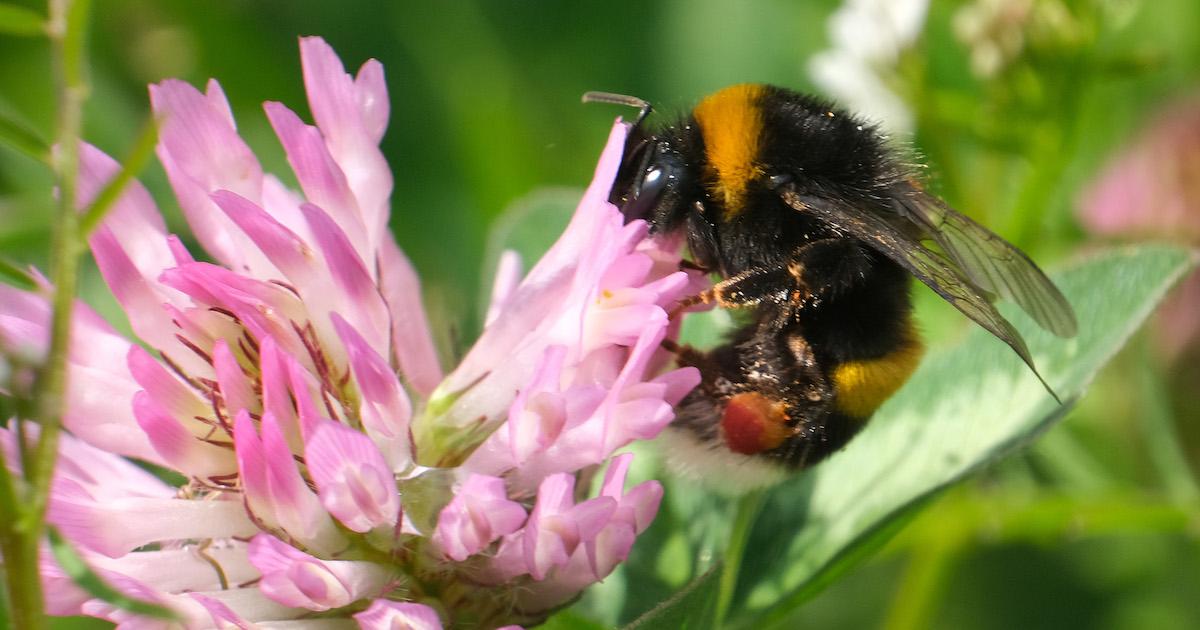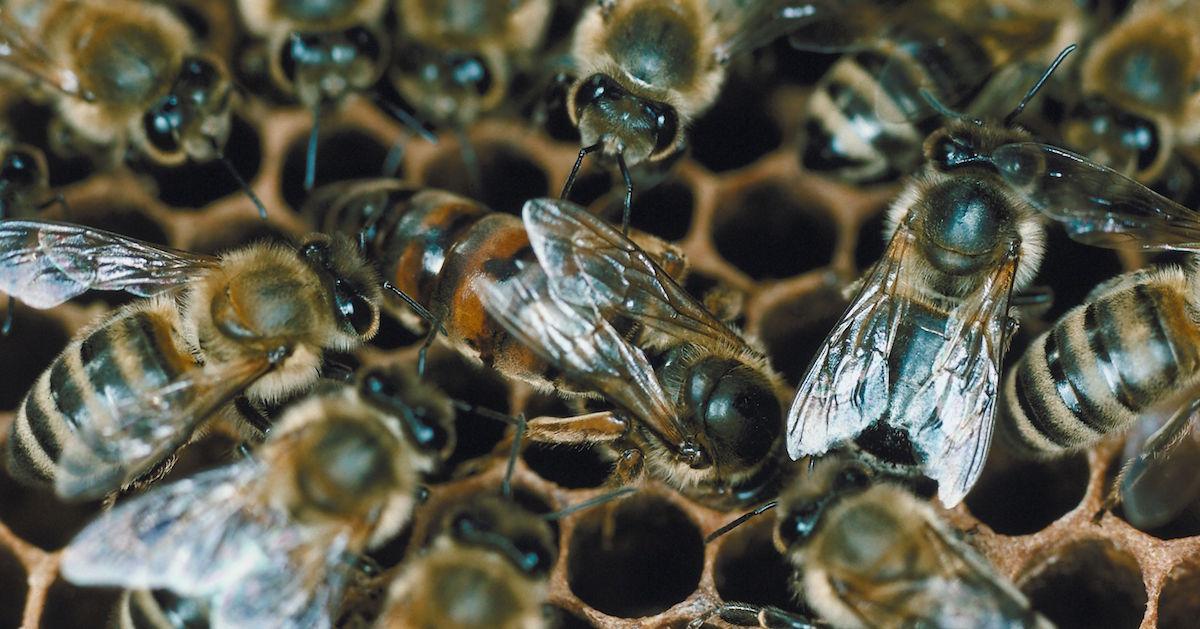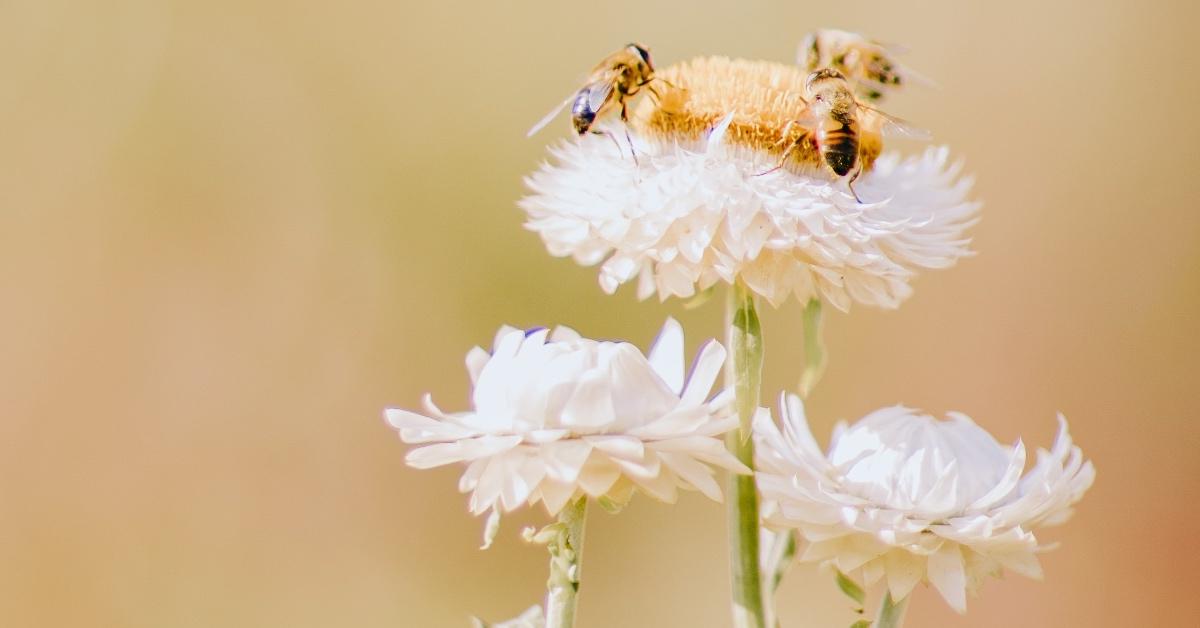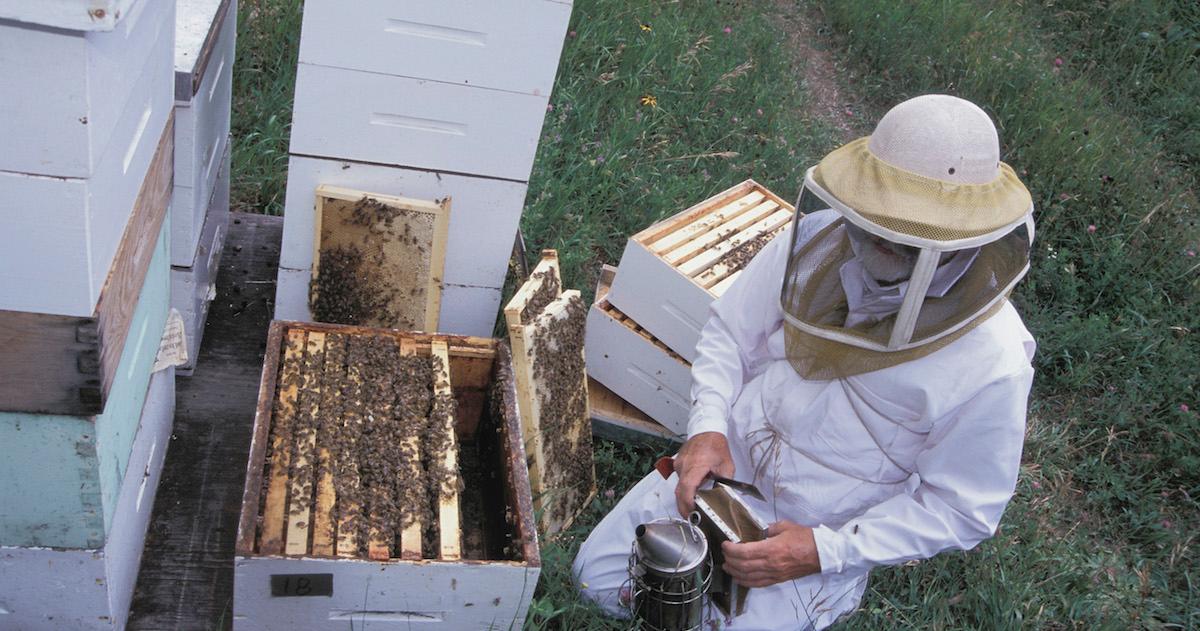Home > Small Changes > Living
UPDATED Aug. 16 2023, 2:03 p.m. ET
PUBLISHED Apr. 1 2021, 3:22 p.m. ET
Insects like bees have a bad rap for their sting ability and persistent, if ominous, buzzing sound. But bees are far more important to the ecosystem than most people realize, and the "Save the Bees" or "Bring Back the Bees" campaigns have it right — we should be more mindful of our fuzzy, flying friends.
Article continues below advertisem*nt
However, one of the most common myths about bees is that they can "smell fear" —but can they really? Here's what you need to know about bees, fear, and how to avoid getting stung.
Article continues below advertisem*nt
So, can bees smell fear?
Bees have an amazing sense of smell, which they use to communicate, sense things, and find food. According to School of Bees, bees can detect threats to themselves and their beehive using that sense of smell. They do this by differentiating pheromones and determining which ones indicate hunger, malice, or aggression against their hive.
According to Save the Bees, bees don't smell "fear." What they smell is a release of pheromones and hormones when a creature is fearful. The bees don't interpret that fear as anything more than a threat, so they react accordingly, letting every other bee know that "something is up."
Bees cannot literally smell fear, but if you are fearful, your body will release certain pheromones, which bees can detect as a threat.
Article continues below advertisem*nt
How do bees smell fear?
When we or other animals are afraid, we produce fear pheromones. For us, that detection occurs in the palate of the mouth. From there, it is transferred to our limbic system, producing the right emotional response. In most cases, these hormones are only detectable by other creatures of the same species. According to School of Bees, bees are the exception to this rule.
Article continues below advertisem*nt
Bees don’t have a palate or a sense of smell that works like ours. Still, they know what fear “smells” like. They can also transmit that smell to their fellow bees, alerting them to the fear. People often say that fear is contagious, and in humans, it sometimes is. In bees, fear is an indication that a nearby creature might be scared enough to do them some harm.
Article continues below advertisem*nt
Do bees attack people who are afraid of them?
According to Insect Cop, bees attack for one reason and one reason alone: to defend their hive. Those who have been stung by bees are keen not to be stung again, thus, your first impulse when being surprised by a buzzingis to jerkily swat it away.
Swatting motions might signal to bees that humans threaten them and their fellow bees. If their fellow bees are close, this situation might rapidly escalate into a swarming attack. Most bees will only sting once before perishing, and many honeybees will give up the chase if you get far enough away.
Article continues below advertisem*nt
Other species, according to Insect Cop, are far less forgiving. The Africanized honeybee, or killer bee, has been known to chase people for up to a quarter-mile. According to the Smithsonian Institute, these dangerous bees are responsible for the deaths of over 1,000 human beings, and victims have been known to receive over 100 stings in one attack.
Here's how to avoid being stung by a bee.
The unfortunate truth about bees is that some people are allergic, so preventing getting stung is a priority when spending time outdoors. The Centers for Disease Control and Prevention (CDC) has a few tips for avoiding a sting:
- Remain calm and still if a stinging insect is flying around.
- Wear clothing that covers a lot of your body (this may also help prevent sunburn).
- Avoid flowering plants or discarded food.
- Avoid heavily scented soaps, perfumes, and deodorants, especially banana-scented products.
This article, originally published on April 1, 2021, has been updated.
